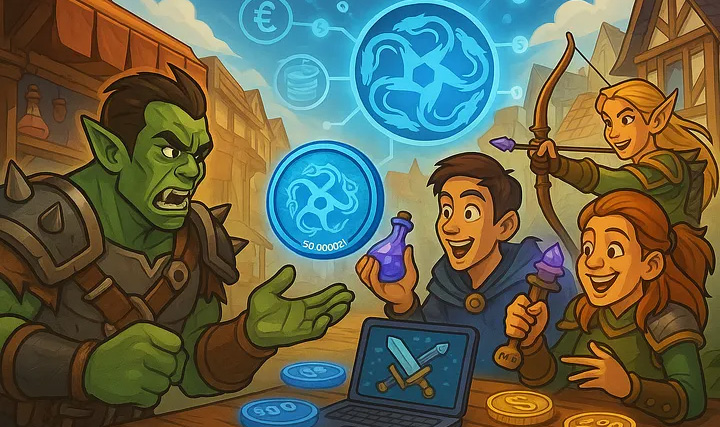In our last article , we explored how Hydra Chain unlocks tokenization, turning real-world assets like real estate and art into accessible digital tokens. Now we dive into one of the fastest-growing areas of blockchain adoption: gaming and the metaverse.
🕹️ The Current State of Gaming
Gaming has become a multi-billion dollar industry, but players often face limitations:
- Centralized ownership — in-game assets belong to publishers, not players.
- Limited portability — skins, items, or characters cannot move across games.
- Monetization walls — most assets can’t be resold, limiting secondary market value.
- High fees and friction — attempts at player-driven economies often hit technical or cost barriers.
These restrictions mean that even though players pour time and money into games, their digital achievements rarely translate into true ownership.
🌐 How Blockchain Changes the Game
Blockchain introduces the concept of true digital ownership. By issuing in-game assets as #NFTs, players can:
- Own their assets — no publisher can take them away.
- Trade freely on secondary markets.
- Use assets across multiple platforms if games support interoperability.
- Earn while playing through play-to-earn (P2E) models.
The #metaverse extends this further, connecting virtual worlds into a shared digital economy where assets, identities, and currencies can flow seamlessly.
🔷 Hydra’s Edge in Gaming and the Metaverse
Hydra Chain is uniquely positioned to support gaming ecosystems and metaverse platforms:
Imagine a fast-paced multiplayer game where #Hydra’s sub-second block times keep every in-game trade in sync without lag. In-game markets thrive because ultra-low fees (as low as $0.000021) make microtransactions affordable, whether you’re buying a potion or trading rare loot. Developers can migrate familiar Ethereum-based NFT systems thanks to EVM compatibility, making adoption smooth. Meanwhile, community governance stays fair with exponentiated staking power, ensuring that no single whale dominates decision-making. And as gaming activity rises or falls, Hydra’s dynamic inflation/deflation model adapts to keep the economy sustainable for both players and developers.
Hydra’s combination of speed, affordability, and decentralization creates the perfect environment for large-scale gaming adoption and vibrant digital worlds.
🚀 The Future of Play
With blockchain, gaming is no longer just entertainment — it’s a global economy. Players gain control, developers open new revenue models, and entire metaverse ecosystems emerge.
Hydra provides the infrastructure to make this possible, supporting a future where play and value are inseparable.
Next up: Decentralized Identity — Taking Back Control of Your Data.


